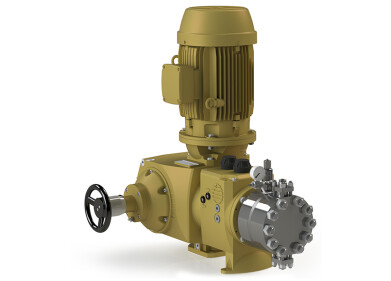Measurement and Testing
What Are the Different Types of Engine Oil?
Jun 27 2019
Engine oil, as the name suggests, is an oil-based product that’s used on engines to improve their performance. Also known as motor oil or engine lubricant, it’s made up of base oils with specific additives for additional function.
However, scratch the surface and you’ll find that there isn’t just one single type of engine oil. In this post, we’ll look at the different kinds of engine oil available and the difference between them.
Conventional vs synthetic
Conventional engine oil is the standard when it comes to engine oil. It’s the oil used in bulk at car dealerships, who want to make sure the oil is topped up before selling. It’s also one of the cheaper options. It’s safe to use as long as it adheres to relevant performance specification. This includes:
- API – American Petroleum Institute
- CCMC – European Constructors
- ILSAC – International Lubricant Standardisation and Approval Committee
- JATO – Japanese Automotive Standards Organisation
Synthetic engine oil, on the other hand, uses synthetic additives. These additives generally improve function, improving the oil’s viscosity and protection for the engine in question. Using those additives, however, also makes them more expensive. With that in mind, it’s best to only use them if your vehicle needs the benefits they’re offering.
Not all engines will benefit from a synthetic oil, so it could simply be a case of throwing money down the drain. As with conventional engine oil, it’s best to check the labelling for information about the oil’s specification.
Synthetic blend
You can also opt for synthetic blend engine oils, which mix synthetic oil with conventional oil. They offer some of the benefits of synthetic oils at a lower cost. They also have reduced volatility, meaning they evaporate slower and last longer. These oils are often chosen by drivers of larger vehicles like vans and trucks, who put fuel economy at the top of the list.
High-mileage
Another option is high-mileage oils, designed specifically for older vehicles with more miles on the clock. These oils have seal conditioners, designed to restore the function of engine seals, stopping oil from leaking out of older engines. They also generally have higher viscosity to make up for engine wear.
What goes into engine oil?
As mentioned, there are a number of standards which engine oils need to adhere to. Manufacturers have to undertake regular testing for the content of the oils with these standards in mind. When doing so, they’re faced with a balancing act between profitability and customer satisfaction. To find out more, read the article ‘Determination of Total Organochlorinated Components in Used Engine Oils’.
Digital Edition
PIN 25.2 Apr/May
May 2024
Safety - Carbon monoxide toxic and flammable gas detection Analytical Instrumentation - Density: A fundamental parameter at critical stages within the petroleum sector - Advancements and...
View all digital editions
Events
Jul 10 2024 Birmingham, UK
Thailand Oil & Gas Roadshow 2024
Jul 11 2024 Rayong, Thailand
Jul 20 2024 Denver, CO, USA
Jul 21 2024 Cape Town, South Africa
Jul 24 2024 Bogata, Colombia


















